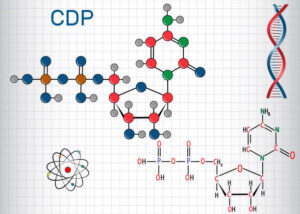Introduction to Quantitative Analysis
Quantitative analysis is one of the most important areas in academic learning, especially in fields like business, economics, engineering, and social sciences. It involves using mathematical and statistical tools to solve problems, interpret data, and make evidence-based decisions. Many students find it challenging because it requires precision, logical reasoning, and strong numerical skills.
Understanding Quantitative Analysis Assignment Help
When students struggle with complex calculations, research models, or statistical software, Quantitative Analysis Assignment Help becomes a valuable resource. Professional services provide structured solutions, step-by-step guidance, and explanations that make learning easier. This support ensures that students can not only complete their assignments on time but also gain a deeper understanding of quantitative methods.
Why Quantitative Analysis Matters in Academics
Quantitative analysis forms the backbone of academic research and decision-making. Students use it to interpret survey results, analyze business performance, and test scientific hypotheses. By mastering quantitative methods, learners can enhance their ability to present logical arguments backed by numerical evidence. This skill is highly valued by professors and examiners across disciplines.
Common Challenges Students Face
One of the biggest challenges students face in quantitative assignments is applying the right statistical tools to the right problem. Many struggle with data interpretation, software usage, and mathematical modeling. Additionally, time pressure during deadlines often adds stress. Without proper guidance, students risk making errors that can lower their grades significantly.
Benefits of Seeking Professional Help
Getting expert help with quantitative analysis assignments offers multiple benefits. First, it saves time and reduces stress. Second, it ensures accuracy in calculations and interpretations. Third, it helps students learn practical approaches from experts. Over time, these insights improve a student’s overall academic performance and confidence in handling complex data-driven tasks.
Key Topics Covered in Quantitative Assignments
Quantitative assignments often include a wide range of topics, such as probability, regression analysis, hypothesis testing, linear programming, and econometrics. Students may also need to work with statistical software like SPSS, R, SAS, or Excel. Professional assignment services cover all these areas, ensuring that students receive well-rounded academic support.
Role of Software in Quantitative Analysis
Modern assignments require students to use analytical software for processing and interpreting data. Tools like SPSS, R, Python, and Excel play a vital role in simplifying calculations and presenting results visually. Many students struggle to use these tools effectively, but expert guidance helps them understand commands, coding, and interpretation with ease.
Importance of Accurate Data Interpretation
Data interpretation is just as important as performing calculations. Many students can calculate results but struggle to explain what those numbers mean. Professionals offering assignment help focus on building this skill by teaching students how to draw conclusions, make predictions, and relate findings to real-world contexts, which adds value to academic projects.
How Assignment Help Improves Learning
Beyond solving assignments, professional guidance helps students improve their overall learning. Experts break down complex formulas into simple steps, provide practical examples, and share tips for efficient problem-solving. This approach helps students gain confidence and makes them independent learners capable of tackling future assignments without difficulty.
Applications of Quantitative Analysis in Real Life
Quantitative analysis is not just an academic subject; it is widely used in real life. Businesses use it to forecast sales, healthcare professionals use it to analyze patient data, and policymakers rely on it to design strategies. By mastering these methods, students prepare themselves for successful careers in industries that value data-driven decision-making.
How to Choose the Right Assignment Help Service
Not all assignment services are reliable, so students must choose wisely. Look for services that provide original solutions, explain concepts clearly, and deliver on time. Reviews, testimonials, and expert qualifications should be considered before making a decision. The right service will act as both a problem-solver and a mentor for academic success.
Ethical Use of Assignment Help
Some students worry about whether using assignment help is ethical. The key is to use it as a learning tool rather than submitting someone else’s work blindly. Ethical use means taking expert guidance, understanding the concepts, and applying them to future tasks. This ensures academic integrity while benefiting from professional support.
Tips for Mastering Quantitative Assignments Independently
While external help is beneficial, students should also focus on building independent skills. Regular practice, reviewing past assignments, and learning to use software efficiently can make a big difference. Additionally, discussing problems with peers and professors can provide new perspectives that strengthen understanding.
How Quantitative Analysis Builds Career Skills
Mastering quantitative analysis helps students in their future careers. Employers value individuals who can analyze data, interpret trends, and provide logical solutions. Whether in finance, marketing, healthcare, or engineering, these skills open doors to better job opportunities and career growth. Assignment help plays a role in building this foundation.
Avoiding Common Mistakes in Quantitative Assignments
Students often make mistakes such as misinterpreting questions, using incorrect formulas, or mishandling data. These errors can reduce grades drastically. By working with professionals, students learn how to avoid such mistakes, check their work systematically, and present results in a clear and structured way.
The Future of Quantitative Analysis in Education
With the growing importance of data in the modern world, quantitative analysis is becoming even more essential in education. More courses are incorporating data-driven projects, and technology is playing a larger role in learning. Students who master these skills today will be better prepared for the academic and professional challenges of tomorrow.
Why International Students Need Extra Support
International students often face additional challenges, such as language barriers and different academic standards. Quantitative assignments can feel even more overwhelming under these conditions. Assignment help provides tailored guidance that bridges these gaps, ensuring that international students can succeed just as well as local students.
How to Stay Motivated While Learning Quantitative Methods
Motivation is key to mastering difficult subjects. Students should set small goals, celebrate achievements, and stay consistent in their practice. Seeking help when needed ensures they don’t feel stuck. Over time, persistence combined with expert guidance leads to mastery of even the most complex concepts.
Conclusion: Succeeding with Quantitative Analysis Assignments
Quantitative analysis is a challenging yet rewarding subject that builds essential skills for academics and careers. With the right balance of independent learning and professional guidance, students can excel in this area. Assignment help services act as a bridge, simplifying difficult concepts and ensuring academic success in data-driven subjects.





